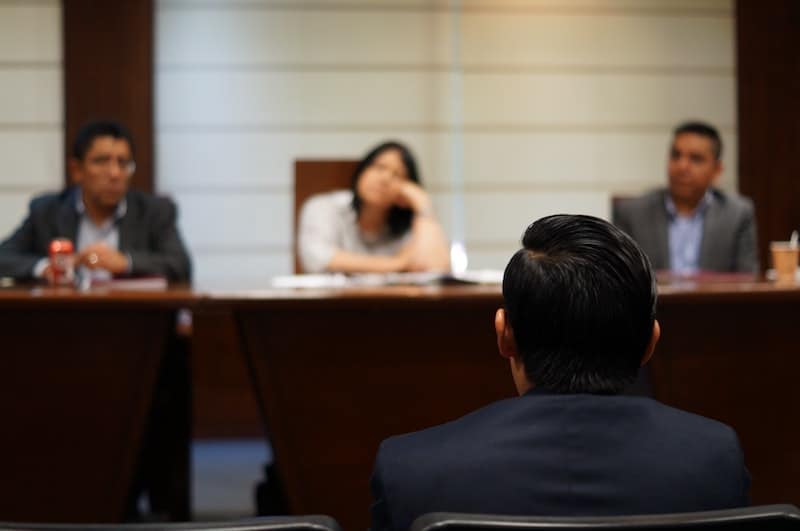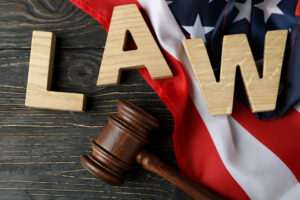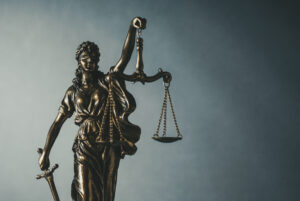
23 Sep Hearsay – Can It Be Used In Court?
Can Hearsay Be Used in Court?
Legal terms can be confusing and difficult to understand if you aren’t used to dealing with the legal system. Hearsay is one of these terms. It is most often associated with legal proceedings and when it appears, it can catch people off guard. In this article, we’ll review what hearsay means and whether or not it can be used in court.
So, can you use hearsay in court? Like many answers to legal questions, the answer to whether or not hearsay can be used in court depends on certain things. Truthfully, most courts do not allow hearsay evidence because it is not considered to be reliable evidence. There are exceptions to this that are explained under the “rules of evidence” according to each state.
Hearsay evidence must qualify as a hearsay exception for it to be accepted in court, meaning it is considered to be more reliable than typical hearsay evidence. Though this explanation may answer your straightforward question of whether hearsay can be used in court – there is a lot more to it. This article will explore what exactly hearsay is, when it can and can’t be used in court, and what the exceptions are.
What Is Hearsay?
The definition of hearsay is: “evidence presented by a witness who did not see or hear the incident in question but heard about it from someone else. With some exceptions, hearsay generally is not admissible as evidence at trial.”
 Let’s break down this definition to understand why it is not considered to be reliable:
Let’s break down this definition to understand why it is not considered to be reliable:
- The evidence being spoken of can be an oral statement, a written or typed document (like email, text, letter, etc.) a voicemail, or another type of record.
- This evidence was discovered outside of court; either said or created outside of the courtroom and not during a trial or hearing.
- You want the judge to believe that whatever you testify that someone else said or wrote to you is information that you want the judge to rely on; it must be “for the truth of the matter asserted” – the evidence or testimony is being presented to the court as proof of the fact contained in the statement.
In testimonies, questions that call for hearsay are objectionable. These questions will lead to answers by the witness beginning with “she/he said.” It is possible for testimonies including statements about what someone said to not be “admitted for the matter asserted” and will not be considered hearsay.
If the testimony is not trying to prove a fact about the case, the statement will not be considered hearsay. In documents, things are different and letters, emails, texts, reports, etc. will often be admitted under a hearsay exception. The trick is for your lawyer to look through hearsay exceptions to determine which will apply to your situation.
Hearsay Exception Examples
Like many other things in legal proceedings, there are exceptions to admitting hearsay evidence. Here are a few of the most common hearsay exceptions you may encounter:
- Excited Utterance: a statement a person makes immediately after a startling event. These kinds of statements are considered to be more reliable because a person isn’t thinking as much about what they are saying after a surprising event. Things like recorded 911 calls would be considered excited utterances.
- Statement for Purposes of Medical Diagnosis or Treatment: if you make a statement to a doctor or healthcare professional about any symptoms you experience, it could be considered hearsay evidence. The doctor or medical professional can testify about what you told them in the ambulance on a ride to the hospital.
- Public Record: records kept in the public domain can qualify as hearsay exceptions. Documents like birth records, marriage certificates, divorce filings, even some police records can fall under this exception.
- Business Records: any records kept by businesses or the government kept in the regular course of business may qualify. These records could include hospital records, rent sheets, report cards, utility bills, etc.
Your lawyer will determine any statements or documents that will qualify as hearsay exceptions that will be useful for your case. Some courts will be more lax on what is considered hearsay and what will be admitted, and your state’s rules of evidence will be the most helpful to review before the legal proceedings start.
Why Is Hearsay Considered Unreliable Evidence?
 Hearsay is considered to be unreliable because of the often inability to prove that whatever was said by the witness is true.
Hearsay is considered to be unreliable because of the often inability to prove that whatever was said by the witness is true.
The ability to prove certain statements may lead to whether or not it is considered to be hearsay.
If a witness says they met up with the defendant at a bar at x time and had x number of drinks and there are receipts or video footage that proves the statement as fact – the testimony will be admitted and it is not hearsay.
Hearsay can be compared to eyewitness testimonies that are often found to be incorrect in police lineups, or recalling events leading up to an incident.
As something traumatic occurs, our ability to recall events and/or statements made by another individual can be put into question.
We may think we saw something, but we cannot prove that it happened or that the individual in the lineup was the one who committed the crime – unless it is on video evidence.
On the other side of things, some statements can be admissible in court if they are not offered as evidence of whatever the speaker/defendant said. This is extremely valuable because it can give the judge or jury a better sense of the circumstances without being objected to in court.
Hearsay and Depositions
A deposition is a witness’s sworn out of court testimony that is used to gather information as part of the discovery process before trial. During this process, lawyers on both sides will question the deponent to determine circumstances leading up to the incident, what happened during the incident, and what happened after the incident.
Most depositions are usually hearsay and are inadmissible at trial. But, the process is still helpful for both sides because it can help them prepare for their case. They will be prepared to object to any statements that are hearsay and/or they will work to find proof or actual evidence that what a witness said is the truth.
As always, there are exceptions to hearsay in depositions:
- A party admits to something that is against his or her interest
- A witness’s testimony at trial contradicts what was recorded at their deposition
- When a witness is unavailable at trial, their deposition may be used in their place
Related Questions
Hearsay, Objections, and Getting Evidence Admitted
In court proceedings, objections play a role in the potential outcome of a case. A lawyer can object to a witness’s answer, statement, or a lawyer’s question and if accepted by the judge, he/she can tell the jury or court reporter to strike it from the record and not let it play into the decision.
Hearsay may often come up in trials and be objected to. It is the lawyer’s job to get around the hearsay. This can be done by finding a reason to get it admitted as reliable evidence. Arguing that a statement is not hearsay because the witness is pointing to “this reason for the statement” instead of “this reason for the statement.” Whether or not objections are accepted or denied is solely up to the judge.
Each court will be different because of the judge that is assigned to the case. Some judges will be more lax on admitting hearsay evidence than others. Because of this, lawyers are the ones who need to be prepared to object and find loopholes to the rules, no matter what side they are on.
Why Is Hearsay A Rule?
The goal of the hearsay rule is to ensure that any evidence presented at trial is as reliable as possible. In criminal cases, an individual’s life could be at stake. The fairness of the justice system wants to  make sure that they are not convicted based on rumors or unreliable evidence based on stories in the community.
make sure that they are not convicted based on rumors or unreliable evidence based on stories in the community.
Because of certain rules of law, like hearsay, lawyers choose their witnesses very carefully. If they know that one witness’s testimony, which may be considered hearsay, can help their case, they may call them to the stand where they can be cross-examined and their statement can be admitted into court.
In the end, hearsay often gets admitted as evidence in legal cases because there are many exceptions to the rule. But, it is up to your professional counsel to find the loophole or object properly to protect the evidence.






